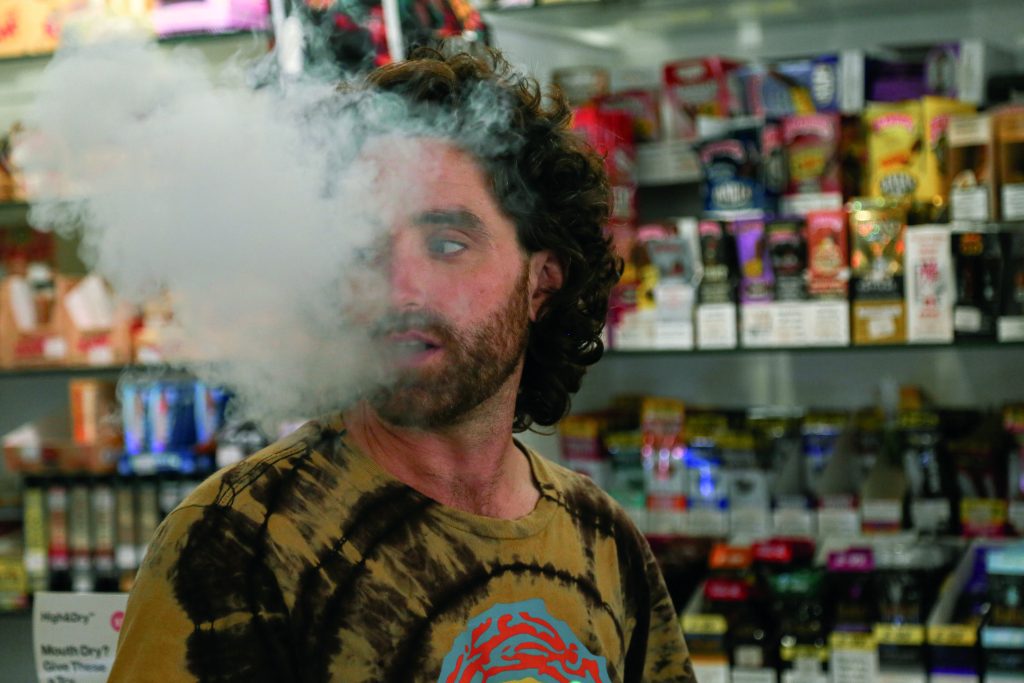Amendment 3: Will Florida legalize pot … or not?
By Elan Greenbaum
Donna Klein Jewish Academy/Montage
Florida voters will soon decide whether recreational marijuana will be legal in the Sunshine State.
Known as the “Marijuana Legalization Initiative,” Florida Amendment 3 is one of six constitutional amendments voters will decide along with their preference for president, congress and other state and local races on the November ballot. If passed, the amendment will allow those 21 and older to have up to three ounces of marijuana and up to five grams of cannabis concentrate.

Proponents of the amendment seem hopeful.
A 2022 Pew Research Center survey reveals that 88% of U.S. adults say the drug should be legal either for recreational or medical use. Since Colorado and Washington became the first states to legalize recreational marijuana 12 years ago, 22 other states have followed suit. Florida would bring that number to 25. Medical marijuana has been legal in the state since voters approved that measure in 2016 with more than 71% of the vote.
Bria-Necole Diggs, who is working on a Ph.D. in epidemiology at the University of Miami Miller School of Medicine, and other advocates say that legalization will help regulate the drug and boost the economy.
“When you have a large city like Miami, I feel if the initiative gets approved it will attract tourism which can help grow the industry,” Diggs said.
Alex Valdez, 33, manager of the U Smoke Shop in Coral Gables, said legalization makes good business sense and that a lack of public knowledge is what makes marijuana controversial.
“I think Florida’s economy as a whole will be affected in a super positive sense,” Valdez said. “There can only be a ton of tax cash that’s generated at a recreational level.”
In other states such as Massachusetts, Maryland, Colorado and California where recreational marijuana is legal, safer and higher-quality marijuana is being grown in their respective markets, Valdez said.
Cannabis can be a great way to heal people, said Alonzo Harding “Trey” Mourning III, CEO of Righteous High, a Miami-based company whose goal is to inform the public on how to use marijuana in a healthy, favorable manner.
“People just need to be educated on how to use it in a way that is beneficial,” said Mourning, a former Division I and former pro basketball player. Mourning and others argue that legalizing recreational marijuana would end costly and sometimes racist enforcement of marijuana laws.
“Racism, systematic racism is evident in the cannabis industry, and it needs to change in the state of Florida,” Mourning said.
Why Vote No
At least 60% of Florida vot- ers need to approve Amendment 3 for marijuana to become legal. While current polls indicate that the amendment will likely pass, legalization has not been without controversy.
For example, in New York, where recreational marijuana is legal, some complain about the pungent odor of marijuana overtaking public spaces and residential areas. Florida Gov. Ron DeSantis, who opposes the measure, also has raised concerns about prolific pot smells that could result here.
According to the National Institutes of Health, medical marijuana is beneficial for people with chronic pain, muscle tightness and side effects of chemotherapy. But the U.S. Department of Health and Human Services warns that the use of marijuana can lead to IQ loss, thoughts of suicide, loss of coordination, dangerous effects on driving and lower career achievement.
Marijuana is a popular drug that can be either smoked or eaten in the form of an edible. What makes the drug so popular is the widely used strain, THC, which keeps consumers wanting more, according to American Addiction Centers, a provider for addiction treatment nationwide. Researchers say high THC consumption can trigger psychiatric illnesses such as depression, bipolar disorder and schizophrenia.
Psychosis is also a side effect of common marijuana use because of the high levels of THC in the drug.
Diggs, who has been conducting research in a cannabis laboratory in Florida for two years, said concern is raised regarding the possible misuse of the drug “by those that are in young and impressionable ages that are in college and trying to have a ‘good time.’”